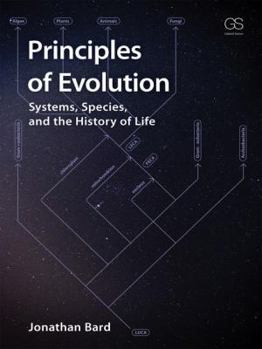Principles of Evolution: Systems, Species, and the History of Life
Principles of Evolution covers all aspects of the subject. Following an introductory section that provides necessary background, it has chapters on the evidence for evolution that cover the fossil record, DNA-sequence homologies, and protein homologies (evo-devo). It also includes a full history of life from the first universal common ancestor, through the rise of the eukaryote and on to the major groups of phyla. This section is followed by one on the mechanism of evolution with chapters on variation, selection and speciation. The main part of the book ends with a chapter on human evolution and this is followed by appendices that expand on the making of fossils, the history of the subject and creationism. What marks this book as different from others on evolution is its systems-biology perspective. This new area focuses on the role of protein networks and on multi-level complexity, and is used in three contexts. First, most biological activity is driven by such networks and this has direct implications for understanding evo-devo and for seeing how variation is initiated, mainly during embryogenesis. Second, it provides the natural language for discussing phylogenetics. Third, evolutionary change involves events at levels ranging from the genome to the ecosystem and systems biology provides a context for integrating material of this complexity. The book assumes a basic grounding in biology but little mathematics as the difficult subject of evolutionary population genetics is mainly covered qualitatively, with major results being discussed and used rather than derived. Principles of Evolution will be an interesting and thought-provoking text for undergraduates and graduates across the biological sciences.
Format:Paperback
Language:English
ISBN:0815345399
ISBN13:9780815345398
Release Date:September 2016
Publisher:Garland Science
Length:376 Pages
Weight:5.60 lbs.
Dimensions:0.8" x 6.8" x 9.6"
Customer Reviews
0 rating





